- Home
- Johnny D. Boggs
Summer of the Star Page 11
Summer of the Star Read online
Page 11
It wasn’t my turn to go back to town on Friday, but I had bribed Perry Hopkins with $1, and he agreed to night herd. This time, I rode Sad Sarah back to Ellsworth, straight to the O’Sullivan home, and left her tethered to the hitching post, while I once again walked—that’s right, walked—her to the town square.
Fireworks lit up the sky.
“It’s the Fourth of July,” I finally announced.
“Of course,” she said.
“That’s why ..... I let the rest be drowned out by the Roman candles. Texas wounds take a long time to heal, and in 1873 we hadn’t gotten around to recognizing Independence Day again. Not since the late war. That explained why John Mueller was closed that day.
There were pies and cakes, ham and stews, biscuits and cornbread, cookies and peach preserves. There were kegs of beer and bowls of punch and pitchers of lemonade. Everything was free. I served myself a glass of punch, and got one for Estrella, along with a bunch of cookies.
“You may have a beer, Madison,” she told me. “I don’t mind.”
“You must have forgotten our first meeting.. I bit into a cookie.
She laughed. “I don’t think I’ll ever forget that.”
“Wish I could.”
She laughed again. “Look at all the stars in the sky,” she said in wonderment.
I stared at her first, then looked up, and thought about saying— “You shine brighter than any one of them.”—but just couldn’t make my mouth work.
The band played “The Flying Trapeze”, but we didn’t dance. A kid in a navy sailor suit came dashing by, only to stop when he saw me holding all those cookies. He gave me such a piteous look, I gave him two, and then the Kansas brat took off with nary a thank you or a smile.
Estrella laughed again.
The band played “Pop Goes the Weasel” and “Old Rosin the Beau”. We leaned against a hitching rail, and sipped our drinks.
A fellow in a blue suit and straw hat walked by, escorting a big woman in an ill-fitting dress. They stepped through an opening toward the dance floor—not really a floor, mind you, but the street—then the fellow stopped, and whirled suddenly.
“McBride, isn’t it?” Harry Pestana, the lawyer, said in that Yankee voice of his.
“MacRae,” I corrected. “Madison MacRae.”
He tipped his hat at Estrella. “I don’t believe I’ve had the pleasure, miss.. Behind him, the fat woman gave Pestana the most murderous look I’d seen in some time.
“Estrella O’Sullivan,” she told him.
“Ah.. He dismissed her, like she was dirt with a name like that, Mexican and Irish, and I felt my temper rising. “Has that Mennonite from Holyrood been in your cow camp, McBride?” he asked.
“He came through the other day,” I said, though I didn’t care much for Pestana asking me in front of Estrella. “We didn’t offer him any coffee, though.”
“He is one determined individual,” the lawyer said. “J.H. Stevens complained about him paying a visit. Print Olive said he almost caused a stampede. And he threatened Long Jack DeLong with an axe.”
“Who’s DeLong?” I asked. Stevens and Oliver were Texas cattlemen. I’d never heard of the other fellow.
“Long Jack. One of our marshal’s deputies.”
The fat woman called out Pestana’s name, telling him to hurry up, that she wasn’t standing there all night.
Ignoring her, he said: “Perhaps I should ask Sheriff Whitney to see that farmer back to Holyrood.. He grinned. “Don’t need him running off our fine Texas clientele.. The grin faded, and his head shook. “On the other hand, I can’t blame the man. Daughter murdered like that ... no telling what the else that fiend might ....”
“Hadn’t you better get to dancing?” I told him, making sure he understood it was no suggestion. “That song’s about over.”
He frowned, but tipped his hat slightly at Estrella, and followed after his lady friend.
I didn’t look at Estrella, just watched the people, and ate another cookie. Finally the band started “The Dundreary Polka”, and Estrella announced that she had no intention of collecting splinters in her skirt while other folks danced. I took the hint, but it wasn’t the song I’d hoped to hear for our first dance.
My heel slipped off again not far into the song, and this time I lost it. I limped the rest of the night, especially whenever we danced. That’s why I found myself at Mueller’s boot shop the next morning. That and the fact I was getting tired of having to look up at Estrella.
* * * * *
“Schrecklich,” Mueller said as he examined my boots, and dropped them into a trash bucket.
“Hey, I need those!” I told him.
He shook his head, wagged a big finger at me, and walked behind a counter. Picturing him now, I think it likely he had had a lot of beers in his life. He was big, broad, balding. His hands were scarred, his eyes too small for his face.
I was reading a two-day-old newspaper, when my boots hit the trash. I rose to retrieve my boots, but stopped as the big Bavarian rose from behind the counter, and, as I was sitting back down, the door opened, and two men walked in.
One yelled: “You lousy Hun. I wanted my boots yesterday, but you wasn’t open!”
When they saw me, one put his hand on a gun I knew he shouldn’t be carrying, but, as soon as he realized I wasn’t heeled, he smiled and pulled back his coat.
“What for was you closed?” the other man said.
“Independence Day,” Mueller said.
“Not in Texas,” the larger of the two men said.
“We don’t celebrate damnyankee holidays,” the one who looked younger said. “And you shouldn’t, neither.. He spied me again, smiling and saying: “I never seen such disgustin’ socks. Have you, Ben?”
“It’s too early to be pickin’ a fight, Billy.. He pulled a pouch from his coat pocket, tossed it up, caught it. The coins inside jingled. “You got Billy’s boots ready, old man?”
“Ja.. Mueller pushed through a curtain, disappearing into a back room.
They looked like brothers. The larger one—not that he was a giant or anything—was dressed like a dandy. He pulled off a wide-brimmed hat, and ran his fingers through his hair, already sweaty from the morning heat. He had just been shaved. I could smell the soap and cologne, and, when he returned his hat, he began twisting the ends of his sandy mustache, then tugged on his neatly trimmed under-lip beard. His eyes were gray, pale, deadly. He had positioned himself against the wall, away from the window.
The other fellow plopped on a chair, straining as he tugged off his boots. He, too, sported a mustache, but thinner and not quite as fancy as his big brother’s. He was donned in a suit of black broadcloth, silk shirt, and dark cravat, along with another one of those $4 hats. I could see the ivory handle of a pistol stuck in his waistband. He got one boot off, and went to work on the other. Apparently he hadn’t noticed the three boot jacks laying on the floor. When the boot came off, he tossed it toward me.
“Try them on, boy,” he said, and hooked his right thumb into the sash around his waist, right near that hide-away pistol.
I didn’t say a thing. Sure didn’t make a move to try on the boots. They were scuffed and battered from spur ridges and too many hours in a saddle. Didn’t match the rest of his get-up. In fact, they were almost as shot as mine were, and probably needed to be tossed into the trash as well.
“Put ’em on, I say,” he insisted. “At least they’ll cover up the smell of your stinkin’ feet.”
“Billy,” his brother said, “it’s too early in the day to start a ruction.”
“I ain’t startin’ nothin’, Ben,” Billy said, his pale eyes never leaving me. “But I bet I’ll be the one finishin’ it.”
Before that hot-tempered bully could finish anything, Mueller reappeared through the curtain, holding a pair of black boots with red
stars inlaid in the uppers.
Billy forgot all about me and my dirty socks, and leaped to his feet, swearing out an oath, and slapping his palms together. “Them’s fine. Them’s fine, old man.. He snatched them from the boot maker’s hands, and showed them off to his brother, like an excited boy on his birthday. In an instant he was sitting, pulling on the boots, stuffing his trousers into the tops.
Smiling at another satisfied customer, Mueller returned behind the counter.
Suddenly it struck me who these two gents might be. I glanced at the older one, who peered out the window, and said: “You’re Ben Thompson, aren’t you?”
“I don’t know you,” Ben said.
“I ride for June Justus,” I said. “Larry’s our cook.”
“My condolences.. He grinned.
“I’m Mad Carter MacRae.”
“Good to know you,” he said. “We Texians need to stick together in a yankee-filled town like this. You and Larry come on over. Try your luck at the Gamblers’ Roost in Nauchville.. He did not offer to shake my hand.
Billy had the patience and temperament of a tornado. “C’mon, Ben,” he said, “let’s grab some breakfast.”
“Pay the man for your boots, Billy,” Ben said, nodding a farewell at me and pressing his back to the wall again.
Grumbling and cussing, Billy Thompson stared. “I thought you was gonna pay.”
Ben slid the pouch back into his coat pocket. “I said that just to get you out of bed. You still got wages from herdin’ them beeves for Millett and Mabry. You pay. But I’ll buy us both breakfast.”
More cussing. “Don’t seem rightly fair,” Billy said, as he handed a few greenbacks to Mueller, who nodded his thanks.
Billy couldn’t just leave, though. That wasn’t his nature. After admiring his new boots—and I have to admit, they were worth admiring—he bent over, picked up the old, worn-out pair, and dropped them by my socks.
“Now, I want to see you wearin’ these fine boots when you come over to the Gamblers’ Roost, Mad Carter MacRae. I ..... His wild eyes had landed on the newspaper, I was holding, and he was laughing. Fast as a rattler, he snatched it from my hand, holding it out toward his brother. “Hey, Ben, check this out.”
I knew what had caught his eye. I’d seen the headline at the top of the Local News section—Nobody Killed Yet.
Ben shrugged, but Billy kept laughing. “Wonder how long that’ll last,” he said, forgetting all about me.
Then, with his shiny new boots, he and his big brother walked out of Mueller’s shop.
chapter
15
“I’ll kill that buffaloin’ scoundrel!” Phineas O’Connor lisped angrily.
I’d just ridden into camp after night herding, and had been excited to hear Phineas’s voice. His rage stopped me in my tracks by Larry’s coffee pot, and his appearance woke me right up.
Lips split. Right eye swollen shut. Nose twisted out of shape, stained with dried blood. His face purple, black, blue except for the dingy bandage tied tight across his forehead. A calico bandanna sling supported his right arm, every finger splintered and bandaged, as well. He wore no boots, and his sleeves looked as if they’d been run over by a McCormick’s Reaper.
“You’re not killin’ no one,” Major Canton said sternly, without looking up from his plate of breakfast.
Phineas seemed about to say something, to argue with the major, but he stopped before making that mistake, and gently touched those damaged lips. That’s when he saw me. “Hey, Mad Carter.. He grinned. “Don’t you recognize me?”
“What happened?” I asked.
“That brawler with a badge.. He tested the cup of coffee Larry McNab had just handed him, wincing as the brew burned his lips. He quickly lowered the cup. “Brocky Jack, they call him.”
“Brocky Jack?. I’d expected to hear Happy Jack Morco’s name.
“Yeah. City Marshal Brocky Jack Norton. Only he ain’t no peace officer. He’s a calculated man-killer, but he needs his deputies to back his play.”
“Coward,” Fenton Larue said.
“That’s the truth, by hang,” Phineas said with a grimace as he rubbed his good hand across his jaw. “The law got my money, and Brocky Jack and his cut-throats got their pound of flesh. They arrested me, Mad Carter. Said I was breaking the town ordinance. But I wasn’t even in the town proper. I was down in The Bottoms. Shooting dice in Nauchville.”
“You should have gone back to Texas with Byron Guy,” Mr. Justus told him.
“Well, it ain’t just me,” Phineas went on. “Those lawdogs are thieves, veritable thieves, I tell you. They make up their own laws. This place is dangersome, Mister Justus. If I was you, I’d sell those beeves and hightail it back to South Texas.”
“Which is what you should have done in the first place,” Major Canton said, and rose to stride across the camp, and deposit his tinware in the wreck pan.
As he refilled his coffee cup, Mr. Justus asked: “You plan on going back to Texas now, son?”
“Can’t,” Phineas answered. “Those vermin stole my horse. And my saddle.”
The major whirled. “What do you mean they stole your horse?”
A statement like that would get any Texian’s attention. You could beat a cowboy half to death, and the major would hardly bat an eye, even if it was one of his own riders, but steal his horse. And his saddle?
“Well, maybe he didn’t steal it ... exactly,” Phineas hesitated. “I had to put something up for bail.”
“Why didn’t you send word to me, O’Connor?” Mr. Justus asked.
“Couldn’t do that, sir. I drawed my time. I don’t work for you no more, least not till we bring another herd north.”
“Well, you do now,” Mr. Justus said, always benevolent. “You’re back on my payroll. That all right with you, Luke?”
Nodding his approval, Major Canton asked Phineas: “How big was that fine?”
I knew what the major was thinking. A cow horse might be worth $10, but Phineas’s double-rigged saddle had to have cost better than $50. So a $60 fine seemed really steep, especially considering the savage beating Phineas had taken.
“Major Canton, sir, I don’t even know all I was charged with. One minute I was trying to explain to Brocky Jack, and next thing I knowed, my lips and nose was bleeding.. He hugged his left side. “Think they busted some ribs, too. But like I was saying, Major, I wasn’t in Ellsworth, but in Nauchville. I got told the law didn’t care what went on in Nauchville.. He turned to his side to spit out a bloody froth. A tooth came with it. “Aw,” he groaned, picking up the molar and washing it off in his coffee cup, before sticking it in the watch pocket of his trousers.
“What you plan on doin’ now, Phineas,” Fenton Larue asked.
“I don’t know, Fenton. Surely I don’t. Look at me. Ain’t got no horse, no saddle, no money. Ain’t even got my boots. Don’t know what happened to those. And I’m shy a good tooth now, too. Don’t that beat all. Have you boys ever seen such a pitiful specimen as you’re eyein’ right now?”
* * * * *
What with me sporting a new pair of Mueller-made boots—the Dutchman had had a pair in his shop that fit me, so I didn’t have to wait—I showed my generosity by giving Phineas my old pair that I’d fished out of Mueller’s trash right before I left the store. He didn’t mind the fact that one heel was missing, and thanked me just the same.
Mr. Justus thought about sending for a doctor, but Larry said he could mend Phineas. He’d had plenty of practice. The boss men decided that if they couldn’t get Phineas’s saddle back from those lawdogs, they could scrounge one up in Ellsworth. He could use horses from Tommy Canton’s string, but it wasn’t like Phineas would be up to any cow work for a spell. In the meantime, he could rest in camp, and maybe help Larry gather fuel for cook fires, things like that.
“Maybe I should have a word w
ith Marshal Brocky Jack.. You couldn’t mistake the scorn the major felt when he said the lawman’s name, but it was the word marshal that he said with contempt.
“Now, Luke ...,” Mr. Justus began.
“No.. Major Canton cut him off. “Phineas ain’t the first Texas cowpuncher who has been taken advantage of by that bunch. Only reason I didn’t speak of this before is because ... well, you know how jo-fired that Irishman is to get into a go at fisticuffs.. He shook his head. “And as many fights as he’s gotten himself into, he should know that he’s no pugilist.”
Mr. Justus started to say something more, but the major had his dander up. “Print Olive has had to bail at least five of his boys out of the town jail.”
All Mr. Justus managed to get in was—“I know.”—before the major went on. “K.P. Chesser told me the same thing yesterday at the Gamblers’ Roost. Which really irked Billy Thompson.”
“It don’t take much to rile Ben’s kid brother,” Larry McNab put in.
I could tell that the major didn’t like all the interruptions, but, when he said that he would pay Brocky Jack Norton a visit, I cleared my throat and heard myself saying: “Well, before you do that, Major, you might want to hear something ....”
Every eye in that camp turned to me, and whatever I thought I might say dried up like spit in a summer windstorm. I stared at the coffee cup in my hand. I could feel my new boots pinching my feet.
“Go on, Madison,” Mr. Justus prodded.
Phineas stared at me. I was focusing on my boots, but I could feel his eyes boring into me.
A sip of coffee did my parched throat little good, but I discovered nerve somewhere down inside me, and made myself look at the major—never at Phineas—then at Mr. Justus. It was easier talking to Mr. Justus, so I kept trained at him. “Well, sir. I saw Phineas in town. He was shooting dice. But it wasn’t in Nauchville, sir. It was in the city.”
“Now, Mad Carter,” Phineas wailed, “what you saying something like that for. I was in Nauchville, boys. Mad Carter ....”
“When was this?” Mr. Justus asked.

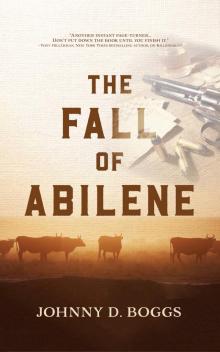 The Fall of Abilene
The Fall of Abilene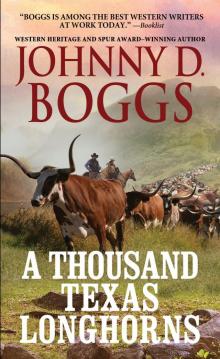 A Thousand Texas Longhorns
A Thousand Texas Longhorns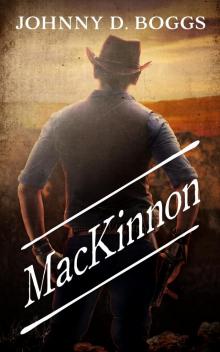 MacKinnon
MacKinnon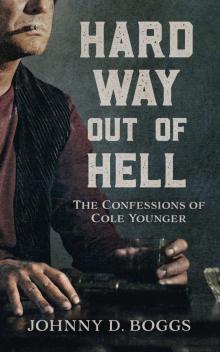 Hard Way Out of Hell
Hard Way Out of Hell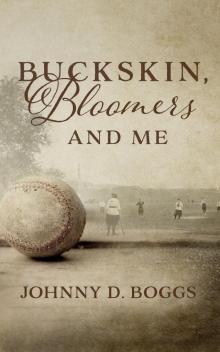 Buckskin, Bloomers, and Me
Buckskin, Bloomers, and Me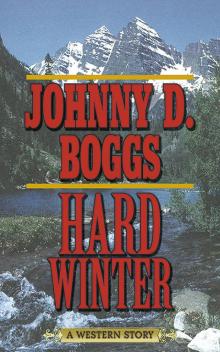 Hard Winter
Hard Winter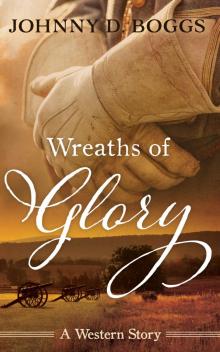 Wreaths of Glory
Wreaths of Glory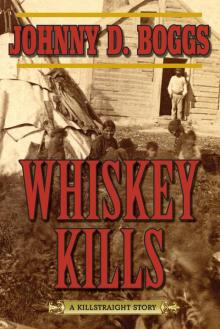 Whiskey Kills
Whiskey Kills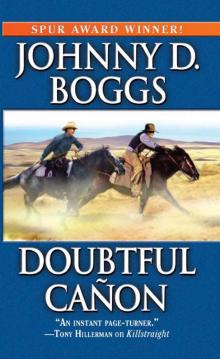 Doubtful Canon
Doubtful Canon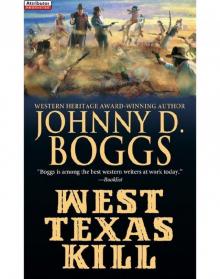 West Texas Kill
West Texas Kill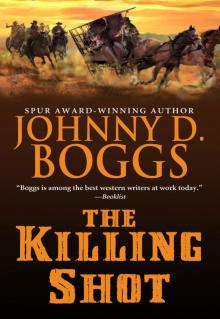 The Killing Shot
The Killing Shot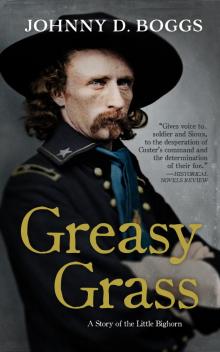 Greasy Grass
Greasy Grass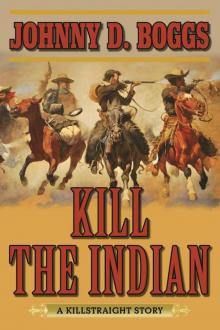 Kill the Indian
Kill the Indian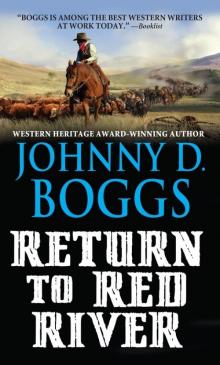 Return to Red River
Return to Red River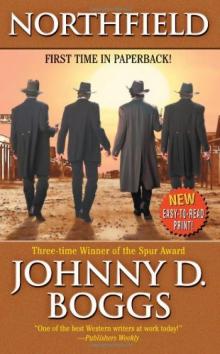 Northfield
Northfield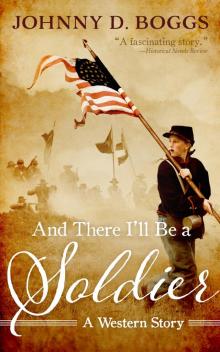 And There I’ll Be a Soldier
And There I’ll Be a Soldier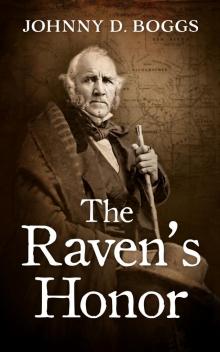 The Raven's Honor
The Raven's Honor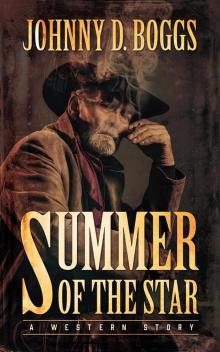 Summer of the Star
Summer of the Star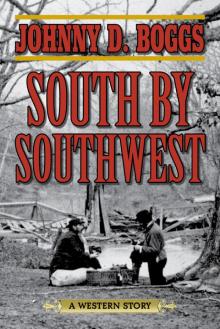 South by Southwest
South by Southwest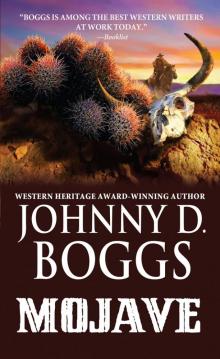 Mojave
Mojave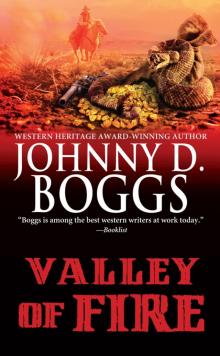 Valley of Fire
Valley of Fire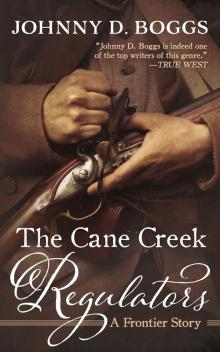 The Cane Creek Regulators
The Cane Creek Regulators